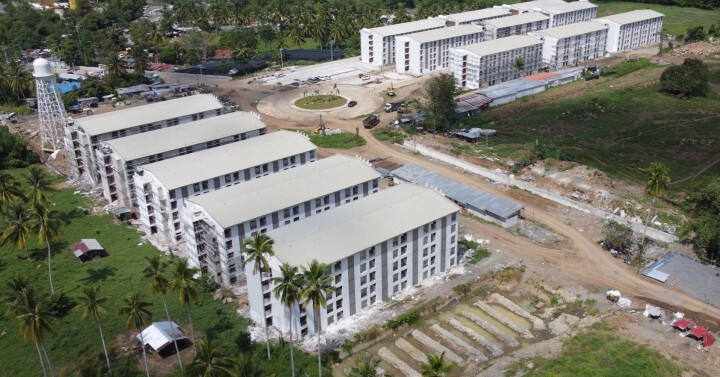
A total of 251,846 socialized housing units are expected to be delivered through the Expanded Pambansang Pabahay para sa Pilipino (4PH), an ambitious housing initiative by the Philippine government. This official commitment by 42 private developers to participate in the program is anticipated to significantly invigorate efforts to address the housing backlog.
On Wednesday, the Department of Human Settlements and Urban Development (DHSUD) announced that this commitment was formalized through a joint letter signed by the chief executives of four major developer organizations. The participating developer groups include the Chamber of Real Estate and Builders’ Associations, Inc. (CREBA), the National Real Estate Association (NREA), the Organization of Socialized and Economic Housing Developers of the Philippines (OSHDP), and the Subdivision and Housing Developers Association, Inc. (SHDA).
In their letter, the developers stated, "Expressing our collective optimism in the current administration and the potential of the recalibrated 4PH Program to provide a meaningful solution to the nation’s overwhelming housing demand, we are pleased to submit an initial list of private developers willing to participate in the program and contribute to the production of socialized housing." They added, "To date, this commitment amounts to a total of 251,846 units."
The developers cited DHSUD's recent reform measures as pivotal to their decision to participate in the program. These reforms include streamlining permitting processes, updating technical standards for socialized housing, adjusting price ceilings, and establishing Housing One-Stop Processing Centers (HOPCs). The groups proposed a pilot implementation of HOPCs dedicated solely to 4PH-related permits and transactions, arguing that this would improve coordination among government agencies, local governments, and private developers, and accelerate approval procedures.
The Philippines faces a severe housing shortage due to rapid urbanization and population growth. Statistics indicate that the housing deficit in the Philippines is approximately 6.5 million units and continues to increase annually. Low-income groups and residents of informal settlements, in particular, struggle to secure even basic housing. To address this issue, President Ferdinand Marcos Jr. has made housing a top priority since the beginning of his term, setting a goal of constructing one million homes annually. The expanded 4PH program is a key policy tool designed to achieve this objective.
The 4PH program goes beyond simply providing houses; it aims to create sustainable residential communities. In addition to housing construction, the program seeks to improve the quality of life by establishing basic infrastructure such as water, sewage, electricity, and roads, as well as developing community amenities like schools, healthcare facilities, and commercial centers. Furthermore, it explores options to enhance housing accessibility for low-income households by offering affordable loan interest rates and flexible repayment terms.
DHSUD Secretary Jose Ramon Aliling welcomed the private developers' commitment, calling it a "huge push" for President Ferdinand R. Marcos Jr.'s housing initiatives. Secretary Aliling stated, "This commitment is clear evidence that the recalibrated and expanded 4PH program is moving in the right direction," adding, "It reinforces our resolve to provide dignified living conditions for housing beneficiaries under the President’s 'Bagong Pilipinas' vision."
This significant commitment from the private sector is expected to be a crucial milestone that enhances the success potential of the 4PH program. However, the program's actual success hinges on the smooth progress of housing construction as planned, stable financial sourcing, and, most importantly, the efficient distribution of housing to the most deserving segments of the population. Through continuous cooperation and transparent operation between the government and the private sector, it is hoped that the Philippines' long-standing housing problem will be resolved, and more citizens will be able to improve their quality of life in stable living environments.
[Copyright (c) Global Economic Times. All Rights Reserved.]






























